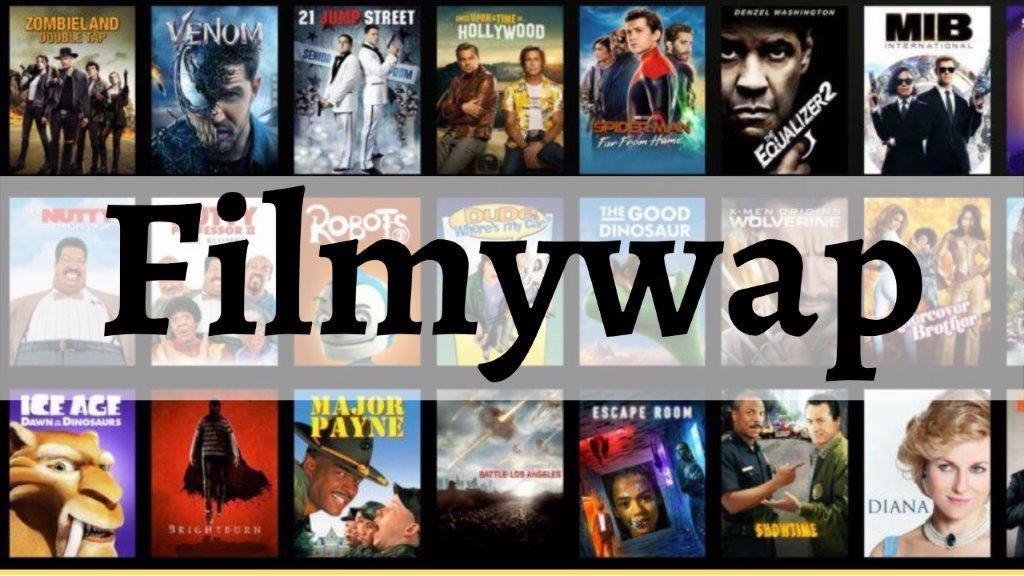The Evolution of Entertainment in the Internet Era
In the past, moviegoers had to wait for films to release in theaters or on television, buy DVDs, or rent cassettes from local video stores. However, the way people consume media has undergone a dramatic transformation in recent years. With the advent of high-speed internet and the proliferation of smartphones, audiences now expect instant access to the latest films and series. This convenience has given rise to streaming platforms, subscription-based models, and, on the darker side, piracy websites. Among the many players in this space, Filmywap has become a widely recognized name.
Filmywap: A Hub of Free Content, But at What Cost?
Filmywap is a website notorious for offering users the ability to download or stream movies and TV shows without paying a single rupee. From the latest Bollywood blockbusters to Hollywood hits, South Indian action dramas, and dubbed foreign films, Filmywap has a massive content library that caters to a wide variety of tastes and languages. Its interface is simple, making it accessible even for users with limited technical knowledge.
Despite its popularity, the platform exists in a legal gray area—or more accurately, an illegal one. The content it offers is often pirated, uploaded without the permission of the copyright holders, making both the site and its users vulnerable to legal action. But its availability and ease of use keep drawing traffic, particularly from regions where access to paid content is limited or unaffordable.
The Appeal of Free Content
The rise of piracy platforms like Filmywap isn’t just about criminal intent; it’s often about accessibility. Many users, especially in rural or economically disadvantaged areas, do not have access to cinemas, cannot afford OTT subscriptions, or lack sufficient internet bandwidth to stream legally. For them, downloading a movie from a site like Filmywap seems like a harmless act of entertainment.
Additionally, the desire to watch a film on the day of release has grown dramatically. People don’t want to wait weeks for an official digital release. Filmywap and similar platforms fill this gap by leaking films within hours of their theatrical debut.
Understanding the Risks: Legal and Personal
While downloading from Filmywap may appear convenient, the risks are considerable. From a legal standpoint, using pirated content violates intellectual property laws in many countries. In India, the Cinematograph Act and the Information Technology Act impose severe penalties on those caught downloading or distributing pirated media. These can include hefty fines and even imprisonment.
Beyond legal concerns, users also expose themselves to digital threats. Piracy sites often carry malware, spyware, or harmful scripts that can infect devices, steal personal data, or even lead to financial losses. Filmywap uses aggressive pop-up ads and third-party redirects, increasing the chances of encountering malicious content with just a single click.
The Domino Effect on the Entertainment Industry
Piracy has a profound impact on the entertainment sector. When a movie is leaked online within hours of its theatrical release, box office revenue drops significantly. This loss isn’t just absorbed by big film studios; it affects everyone in the production chain—directors, actors, technicians, makeup artists, musicians, and even junior staff.
Independent filmmakers and regional cinema, which often operate on tight budgets, are particularly vulnerable. For them, even a small dip in revenue can mean the difference between survival and shutdown. Continued piracy reduces the incentive for studios to invest in creative storytelling, and the overall quality of content may suffer.
Why Piracy Persists: The Gaps in the Legal Ecosystem
While streaming services have exploded in popularity, many regions still lack affordable, accessible options for digital content. Language barriers, limited payment methods, and poor internet infrastructure also contribute to the appeal of piracy.
Moreover, some platforms focus only on English or Hindi content, ignoring regional languages and preferences. This leaves a significant portion of the population underserved, encouraging them to turn to sites like Filmywap for entertainment that feels more relevant or culturally resonant.
Until the legal ecosystem adapts to meet these varied demands, piracy will continue to thrive.
Steps Being Taken to Combat Piracy
Governments, content creators, and digital platforms have started joining forces to tackle piracy. Anti-piracy cells have been set up by law enforcement, and takedown notices are frequently issued to websites like Filmywap. Internet service providers (ISPs) are often instructed to block access to such domains.
Meanwhile, streaming services are becoming more flexible. Many now offer regional content, cheaper subscription tiers, mobile-only plans, and ad-supported viewing options. These strategies aim to draw users away from piracy by offering legitimate, affordable alternatives.
What Can Viewers Do?
Change starts with individual decisions. Viewers play a crucial role in shaping the media landscape. Supporting the film industry through legal means—watching movies in theaters, subscribing to OTT platforms, renting films online, or watching ad-supported content—is a direct way to ensure that artists and creators are rewarded for their work.
Here are a few simple practices to adopt:
- Avoid piracy websites like Filmywap, even if they’re easily accessible.
- Educate others, especially friends and family, about the consequences of piracy.
- Choose legal alternatives, many of which offer great content at minimal cost.
- Support local and regional filmmakers by promoting and watching their films through authorized channels.
Conclusion: Moving Toward Ethical Entertainment
Filmywap may seem like a convenient shortcut in the world of modern entertainment, but its long-term impact is far from harmless. Piracy undermines creative industries, jeopardizes user safety, and promotes a culture of entitlement over ethical access. As digital consumers, it’s essential to recognize the value of content and the effort behind its creation.
With legal streaming platforms expanding their reach, affordability, and content diversity, now is the time to make informed and responsible choices. Let’s choose quality, legality, and respect over shortcuts. Supporting the film industry today ensures a thriving creative future for tomorrow.


